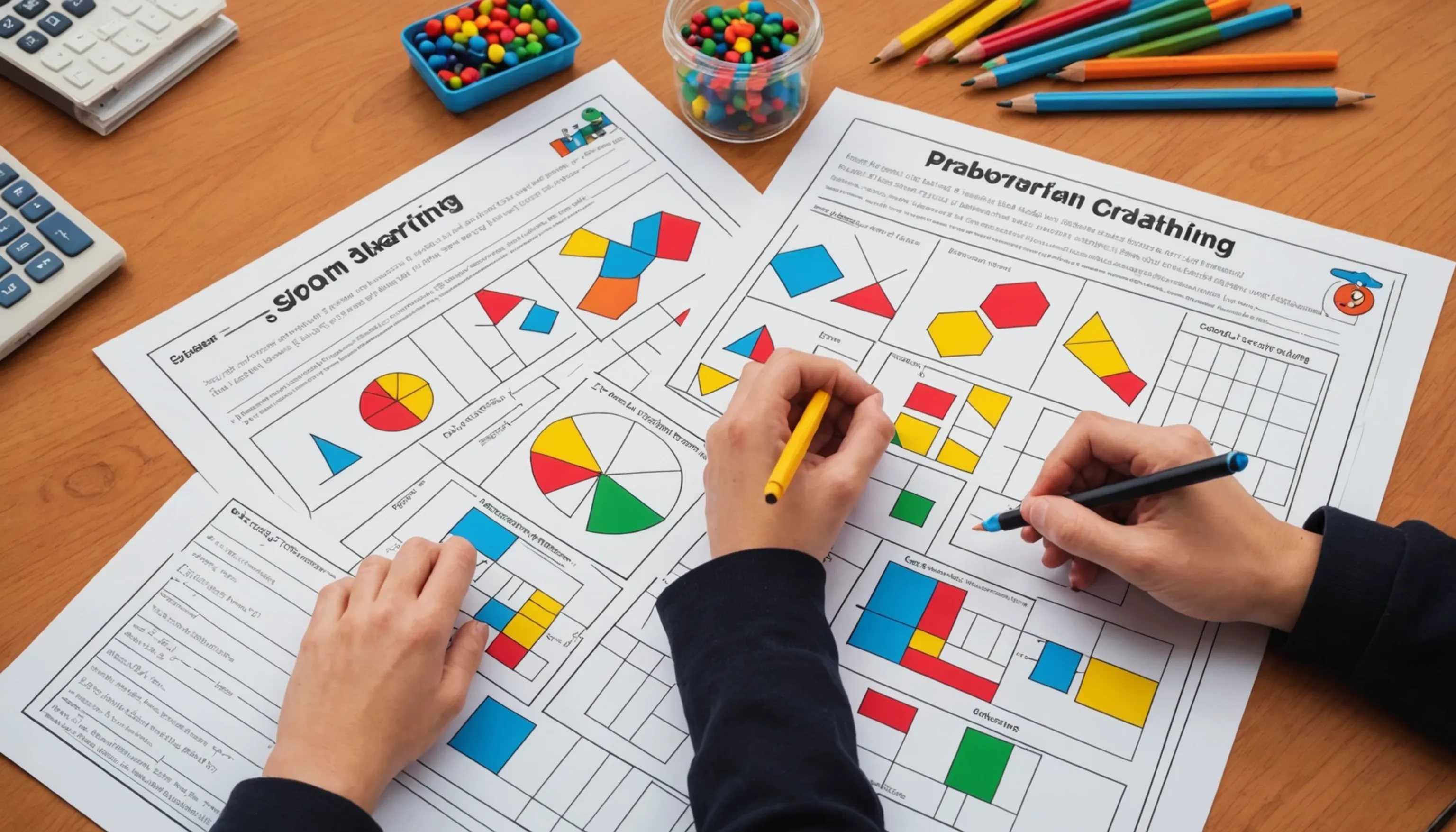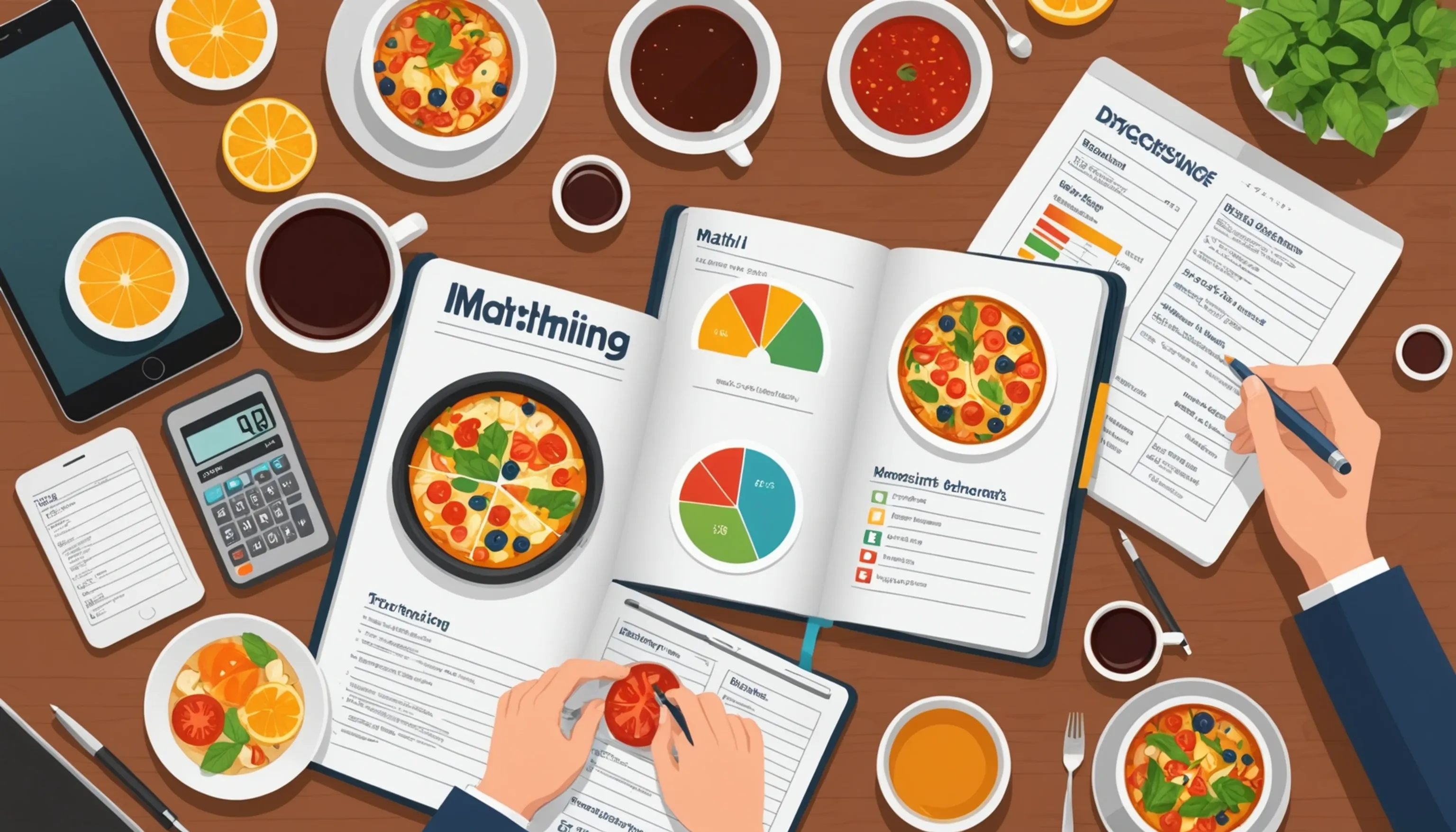How Math Contributes to Critical Thinking
 HvWHenry van Wagenberg
HvWHenry van Wagenberg
How Math Contributes to Critical Thinking
Mathematics plays a crucial role in developing critical thinking skills. By engaging with mathematical concepts, students learn to analyze information, identify patterns, and make connections between different ideas. This process encourages logical reasoning, which is essential for problem-solving and decision-making.
As students tackle mathematical problems, they develop the ability to evaluate situations, consider alternative solutions, and justify their reasoning. These skills are not only applicable in math but also extend to everyday life, making math an invaluable tool for fostering a mindset that values critical analysis and rational thought.
The Role of Mathematics in Developing Logical Reasoning
Mathematics is fundamental in cultivating logical reasoning, a skill that is essential not just in academics but also in everyday life. Engaging with mathematical concepts requires individuals to follow a structured approach to problem-solving, which involves making deductions based on given information. This process enhances the ability to think critically and logically.
When students learn math, they are often faced with problems that require them to analyze data, identify relationships, and draw conclusions. For instance, solving equations involves understanding how to manipulate numbers and variables systematically. This practice helps students develop a methodical way of thinking, which is applicable across various disciplines.
Moreover, math teaches the importance of evidence-based reasoning. Students must justify their answers, which encourages them to back up their claims with logical arguments and mathematical proof. This emphasis on justification fosters a deeper understanding of concepts and nurtures an analytical mindset.
Logical reasoning developed through mathematics also enhances decision-making skills. Teens learn to weigh options, consider consequences, and evaluate outcomes based on quantitative data. This skill is particularly valuable in real-world scenarios, such as budgeting, planning, and assessing risks.
In summary, the role of mathematics in developing logical reasoning cannot be overstated. It equips students with the necessary tools to approach problems systematically, think critically, and make informed decisions, all of which are vital skills in today’s complex world.

Problem-Solving Skills Through Mathematical Concepts
Problem-solving skills are crucial for success in various aspects of life, and mathematics provides a solid foundation for developing these essential abilities. By engaging with mathematical concepts, students learn not just to find solutions but also to approach problems systematically and creatively.
Mathematics encourages students to break down complex problems into manageable parts. For example, when tackling a challenging algebraic equation, students must identify what is known and what needs to be determined. This practice of dissecting problems fosters a structured approach, allowing for clearer thinking and more effective solutions.
Moreover, mathematical concepts like geometry and statistics offer real-world applications that enhance problem-solving skills. For instance, geometry teaches spatial reasoning, which is vital in fields like architecture and engineering. Statistics, on the other hand, equips students with the ability to interpret data and make informed decisions based on evidence.
As students encounter various mathematical challenges, they also learn resilience. Not every problem will have an immediate solution, and this experience teaches them the value of persistence and critical thinking. They learn to experiment with different strategies, adapt their approaches, and reflect on their methods, all of which are vital components of effective problem-solving.
In conclusion, mathematics is not merely about numbers; it is a powerful tool for developing problem-solving skills. By applying mathematical concepts, students cultivate the ability to think critically, analyze situations, and devise effective solutions, preparing them for real-life challenges.
Real-World Applications of Math and Critical Thinking
Mathematics and critical thinking are deeply intertwined in real-world applications, affecting various aspects of daily life. For instance, budgeting and managing finances require mathematical skills to analyze expenses and make informed decisions. In professions like engineering and architecture, math is essential for designing structures and solving complex problems. Additionally, critical thinking is vital in interpreting data, such as in scientific research or market analysis, where conclusions must be drawn from quantitative information. Ultimately, the ability to apply mathematical concepts alongside critical thinking skills prepares individuals to tackle real-life challenges effectively and make sound decisions.

Examples of Math in Everyday Decision Making
Mathematics plays a significant role in everyday decision-making, often in ways that go unnoticed. From budgeting household expenses to planning a trip, math is at the core of many decisions we make. For instance, when managing a budget, individuals must calculate income against expenses to determine how much they can save or spend. This involves addition, subtraction, and sometimes even more complex calculations, like determining percentages for discounts during shopping.
Another example is in cooking and baking. Recipes require precise measurements, and adjusting a recipe for more or fewer servings involves basic arithmetic. When doubling or halving a recipe, individuals must apply their understanding of fractions and ratios to ensure the final dish turns out as expected.
In health and fitness, math also plays a crucial role. Whether tracking calories, monitoring heart rates, or calculating the distance during exercise, individuals use mathematical concepts to make informed decisions about their health. For example, knowing how to calculate body mass index (BMI) involves basic division and multiplication, helping individuals assess their weight relative to their height.
Additionally, when planning travel, math is used to compare costs, calculate fuel consumption, and estimate travel time. Understanding distances and speed helps individuals make optimal choices about routes and modes of transportation.
In summary, math is integral to everyday decision-making, enabling individuals to analyze information, evaluate options, and make informed choices that affect their daily lives.
How Math Enhances Analytical Skills
Mathematics is a powerful tool that enhances analytical skills, which are crucial for effective problem-solving and decision-making. When individuals engage with mathematical concepts, they develop the ability to evaluate information, draw conclusions, and make informed choices based on evidence.
One way math enhances analytical skills is through the practice of logical reasoning. For instance, when solving complex equations or interpreting data sets, individuals learn to identify patterns and relationships. This analytical approach helps in breaking down problems into smaller, manageable components, allowing for a clearer understanding of the overall situation.
Moreover, math encourages critical thinking by requiring individuals to justify their answers. Whether in geometry, algebra, or calculus, students must provide logical explanations for their reasoning, which fosters deeper cognitive processing. This habit of justifying answers extends beyond mathematics, influencing how individuals approach problems in everyday life.
Statistics is another area of math that significantly contributes to analytical skills. By learning to interpret data, individuals become adept at assessing trends and making predictions. For example, analyzing survey results requires an understanding of averages, medians, and variability, enabling individuals to draw meaningful conclusions from quantitative data.
Furthermore, mathematical modeling allows individuals to simulate real-world scenarios, enhancing their ability to analyze potential outcomes and make data-driven decisions. Whether evaluating business strategies or scientific experiments, math equips individuals with the analytical tools necessary for thorough evaluation and informed decision-making.
In conclusion, math enhances analytical skills by promoting logical reasoning, critical thinking, and data interpretation, essential for navigating complex problems in various domains.
Encouraging Teenagers to Embrace Math for Critical Thinking
Encouraging teenagers to embrace math can significantly enhance their critical thinking skills. To foster a positive attitude towards math, parents and teachers can incorporate real-world applications that demonstrate its relevance. Engaging activities, such as math games or hands-on projects, can make learning enjoyable. Additionally, discussing the importance of math in various careers can inspire students to see its value.
Creating a supportive environment where questions are welcomed and mistakes are seen as learning opportunities will also help teenagers build confidence in their mathematical abilities. By emphasizing the connection between math and critical thinking, educators can motivate students to explore and appreciate the subject.
Strategies for Parents and Teachers
Supporting teenagers in their journey to embrace math and develop critical thinking skills requires strategic approaches from both parents and teachers. Here are some effective strategies to consider:
1. Relate Math to Real Life: Demonstrating how math applies to everyday situations can spark interest. Use examples from budgeting, cooking, or shopping to show how math is relevant in daily life.
2. Foster a Positive Environment: Create a space where students feel comfortable expressing their thoughts and asking questions. Encouragement and positive reinforcement can build their confidence in math.
3. Incorporate Technology: Utilize educational apps and online resources that make learning math interactive and engaging. Many platforms offer gamified experiences that can enhance understanding and retention of concepts.
4. Encourage Problem-Solving: Present students with real-world problems to solve. This approach enhances critical thinking by requiring them to analyze data, weigh options, and develop solutions.
5. Promote Collaboration: Group work allows students to share ideas and learn from each other. Collaborative problem-solving fosters communication skills and helps students appreciate different perspectives.
6. Set Realistic Goals: Help students set achievable goals in their math studies. Celebrating small successes can motivate them to continue pushing their boundaries.
7. Stay Involved: Parents should maintain an active role in their child’s education by attending school events and communicating with teachers. This involvement shows students that their education is a priority.
In summary, by implementing these strategies, parents and teachers can significantly enhance teenagers' engagement with math and their development of critical thinking skills.
Resources and Tools to Support Math Learning
Providing effective resources and tools can greatly enhance math learning for teenagers. Here are some valuable options that parents and teachers can utilize:
- Online Learning Platforms: Websites like Khan Academy, IXL, and Mathway offer interactive lessons and practice problems tailored to different skill levels. These platforms allow students to learn at their own pace and revisit challenging concepts as needed.
- Educational Games: Incorporating games into learning makes math fun. Board games like Monopoly and card games like Uno can reinforce mathematical concepts while providing entertainment.
- Printable Worksheets: Websites such as Education.com and Math-Drills.com offer a wide range of printable worksheets that cater to various topics and grade levels. These resources are excellent for additional practice at home.
By incorporating these resources and tools, parents and teachers can create a rich learning experience that encourages teenagers to engage with math and develop critical thinking skills.
